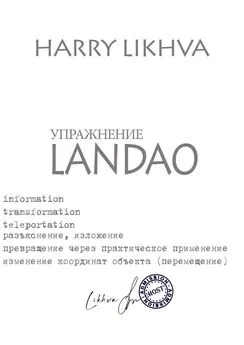Harry Turtledove - Give me back my Legions!
- Название:Give me back my Legions!
- Автор:
- Жанр:
- Издательство:неизвестно
- Год:неизвестен
- ISBN:нет данных
- Рейтинг:
- Избранное:Добавить в избранное
-
Отзывы:
-
Ваша оценка:
Harry Turtledove - Give me back my Legions! краткое содержание
Give me back my Legions! - читать онлайн бесплатно полную версию (весь текст целиком)
Интервал:
Закладка:
“I should say not,” the girl’s father answered. For a moment, Arminius thought he’d reached him. Then the wretch continued, “Before the Romans came, nobody could’ve paid anywhere near so well.”
“We have to get rid of them,” Arminius insisted. “They’ll ruin us if we don’t.”
The older man stared at him in what Arminius hoped was honest incomprehension. “Why do you want to get rid of them when they’re making us rich? I can spend some of this silver at their camp for things they have and we don’t. My little girl wants some fancy combs for her hair. Hard to tell her no when she was the one who made the money, eh?
I can even buy wine if I want to. Like I said, I might as well be a chieftain myself.”
“You might as well be a swine,” Arminius said.
“I don’t know who you are, but you’ve got no cause to talk to me that way.” The villager didn’t reach for a spear or a sword. He was brave enough running his mouth, but not when he had to back up his words.
So it seemed to Arminius, anyhow. He didn’t think about what it might be like to confront a large, fierce, well-armed stranger only a little more than half his age. People half Arminius’ age were children; he didn’t need to fear them.
He didn’t need to fear the shameless girl’s father, either. He turned his back and strode away. If his scorn made the other man respond, he would do what he had to do - what he wanted to do. But, regretfully, he didn’t think it would. And he turned out to be right.
He wondered if he could make it out of the village without being sick. He managed, but it wasn’t easy. The Romans purposely changed the way the folk they conquered did things. He’d heard about that in Gaul, and seen it with his own eyes in Pannonia. They were like potters working with soft clay, shaping it into whatever they wanted.
They also changed people - and peoples - without meaning to. If they hadn’t set up their encampment so close to this village, that man would have stayed an ordinary fellow. Oh, chances were he never would have been a hero or any kind of leader, but Arminius wouldn’t have wanted to wipe him off the sole of his shoe like a dog turd, either. The man never would have been proud of how much his daughter could make going down on her knees.
And he wouldn’t have worried about fancy combs or wine. The Romans might not have known that they used such things as weapons, but they did. Too many Germans craved what they lacked and the Romans had. Wine and luxury goods had bought too many chieftains - Arminius’ fists clenched as he thought of Thusnelda’s father.
Silver - no matter how you got it - could buy lesser men, too. And if the Romans bought enough men and women, if they persuaded them the way of life inside the Empire was better than their own . . . what then? Why, the folk of Germany would turn into Romans. They would be taxpayers, slaves, the way the Romans themselves were slaves.
Arminius shook his head. “By Tuisto and Mannus, it will not happen!” he vowed. Tuisto was a god born of the earth. Mannus, Tuisto’s son, was reckoned father of the German folk. Mannus’ three sons were said to be the ancestors of the three divisions of German stock. Some people gave Mannus many more sons, men whose names matched those of the various German tribes. Maybe they were right - how could anyone now know for sure? But Arminius preferred the simpler arrangement.
He wanted things simple in his Germany, too. He wanted his folk to stay free, the way it had always been. And he wanted to drive the Romans back over the Rhine. He would have liked to drive them farther still, but he didn’t suppose the spineless Gauls would help.
Men like the gleeful pimp back in that village made him wonder if even his own folk would help.
IX
When Quinctilius Varus rode forth from Mindenum, he rode forth with the idea that he was somebody and needed to be seen as somebody. He much preferred civilian clothes to a general’s muscled corselet and scarlet cloak, but conscientiously donned them anyhow.
“You look . . . magnificent, sir,” Aristocles murmured, tightening the fastenings that held the corselet’s breast and back pieces together.
Did that little pause conceal the word ridiculous? Varus suspected it did, but he couldn’t prove it, and the slave would only deny everything. What else did slaves do? Better not to pick a fight you had no hope of winning. Instead, Varus said, “I aim to overawe the barbarians. Let them see Roman might, personified in me. Let them see, yes, and let them despair of resisting.”
“Of course, sir,” Aristocles said. It might have been agreement. Or it might have been, You must be joking, sir.
Again, Varus couldn’t prove a thing. Again, he had sense enough not to try. Instead, cloak swirling around him, he strode out of the tent. A cavalry officer standing outside gave him a clenched-fist salute.
The officer also gave him a leg-up. He settled himself in the saddle. He would have preferred a litter, but he could ride tolerably well. The Germans, for their part, had made it very plain that they despised litters. They didn’t think a man had any business being carried by other men. To Varus’ mind, that was only one more proof they were barbarians. He hated having to cater to local prejudices. But, since he did want to impress, he found himself with little choice.
Vala Numonius rode with him. So did a troop of stolid cavalrymen. The Germans could still overwhelm them if they wanted to badly enough. But he had enough Romans with him to put up a stout fight. And the Germans had to know his murder would lead to vengeance on a scale they could barely imagine. Varus felt safe enough.
Besides, the village where he was going was supposed to be friendly. The locals had begun holding assemblies to talk about what they should do, very much as villagers in Italy might have done. So reports said, anyhow. One thing Varus had learned in his administrative career: if you trusted reports, if you didn’t go out and see for yourself, sooner or later something would bite you in the backside.
Probably sooner.
“We’ll make Roman subjects out of them yet,” he said to Vala Numonius.
“Gods grant it be so,” the cavalry commander answered. “But we could build a new Rome in place of our encampment here, and I still wouldn’t be sorry to see the last of this miserable country. No olive oil. No wine. Too cursed many Germans.”
“I know what you mean,” Varus said. “Still, Augustus didn’t send me here to fail. We collected taxes from them last fall. We’ll take more this time around - see if we don’t - and most of it in silver. Half the battle is getting them used to the idea of paying. Once they are, once they don’t grab for their spears every time the tax-collector comes around, we’ll be on the road to triumph.” He hastily chose a different word: “To victory.”
“I understand, sir,” Numonius assured him.
Since Augustus became the supreme leader in the Roman world, generals couldn’t aspire to a proper triumph: a procession through the streets of Roman acclaiming them for what they’d done. Their victories were assumed to come in Augustus’ name and at his behest. If you said you wanted a triumph of your own, it was almost the same as saying you wanted Augustus’ position.
Varus . . . wouldn’t have minded having it. He didn’t think he’d get it after Augustus died, though. Of Augustus’ surviving kin, all the signs pointed to Tiberius. Not only had he been (disastrously) married to Augustus’ daughter, he was also Augustus’ wife’s son and a first-rate soldier to boot. Overthrowing him would take a civil war, and Rome had seen too many.
But Tiberius was within a year or two of Varus’ age, and childless. If he died fairly soon . . . In that case, people might look to me, Varus thought.
A branch hanging down from an oak into the narrow path swatted him in the face and snuffed out his daydreams of imperial glory. “Never mind building a new Rome here, Numonius,” he said. “What we need to build in this benighted place are some decent roads.”
“You’ve thrown a triple six with that, sir!” Vala Numonius exclaimed. “It won’t be easy or cheap, though. So much of this country is swamp or bog or mud or something else disgusting.”
“We can do it,” Varus said. “Back a lifetime ago, the Germans never dreamt we could bridge the Rhine and punish them for sticking their noses into Gaul. Caesar showed them how ignorant they were. And proper highways would be worth their weight in gold here. Except along rivers, we have a demon of a time getting troops where they need to go.”
“Don’t I know it!” Numonius rolled his eyes. “Horsemen have an even worse time pushing down these narrow, twisting tracks or slogging through the mud than foot soldiers do.”
“Yes, I can see how that would be so.” Varus’ decisive nod was patterned after the one Augustus habitually used. “Roads, then. As soon as we decide it’s safe enough for the engineers to start working on them. Or maybe even a little before that.”
“A little before that would be very good,” Vala Numonius said. “If you wait till you’re sure you’re safe in Germany, you’ll wait forever.”
“Ha!” Varus’ laugh faded to a rueful chuckle. “That’s one of those jokes that would be funny if only it were funny, if you know what I mean.”
One of the Romans riding ahead of the governor and the cavalry commander said, “Here’s their village, sir.” Under his breath, he added, “Gods-forsaken little pisspot of a place, isn’t it?”
Quinctilius Varus didn’t think he was meant to catch that last, so he pretended he didn’t. As the path came out of the forest into the cleared land around the village and he got a good look at it, he found he had a hard time disagreeing with the cavalryman.
The cattle and sheep were small and scrubby, the horses mere ponies. The swine seemed only half a step up from wild boars, while the snarling dogs might have come straight from the wolfpacks that roamed the woods. The houses were huts, with walls of mud and sticks and with thatched roofs that hung out on all sides far enough to keep the rain from melting the mud.
And the people . . . were Germans. Varus had got to the point where he didn’t mind watching the women. They were tall, strongly made, and most of them fair. Nothing wrong with any of that. The men, though, were as close to wild as the pigs and the dogs. He’d learned that calling another man a swinehound was a favorite German insult. Now he thought he understood why they used it. It suited them.
Ten or twelve big men, all swathed in cloaks and carrying spears, stood around in what passed for the village square arguing with one another. They shouted. They clenched fists and shook them under their neighbors’ noses. No one ran anybody through, but Varus wondered if it was only a matter of time.
“This is the assembly they wanted you to see, sir?” Vala Numonius said. “If they’re proud enough of this to want to show it off, gods only know what they do when we’re not watching.”
“Too true,” Varus said with a sigh. Still, he could write to Augustus and truthfully - well, almost truthfully - tell him he’d seen the Germans begin to imitate Roman institutions. Augustus would be glad to hear something of that sort. And if it wasn’t as true as it might have been just yet, Varus would make it so before too long. He was confident of that.
Then one of the barbarians startled him by waving and calling out in pretty fair Latin: “Hail, your Excellency! Good to see you! How are you today? Would you like me to translate for you?”
Читать дальшеИнтервал:
Закладка:







